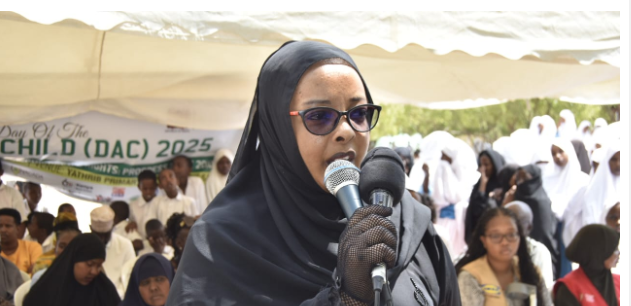
Why children and teenagers need to stay active
Children and adolescents should get 60 minutes of physical activity per day.
The problems were highlighted during the commemoration of the Day of the African Child at Yathrib Primary School in Garissa.
In Summary

Audio By Vocalize

Poor access to quality education, adequate nutrition and healthcare and protection from violence, exploitation, and neglect are some of the challenges children in Northeastern still face.
The problems were highlighted during the commemoration of the Day of the African Child at Yathrib Primary School in Garissa town under the theme, 'Planning and budgeting for children’s rights’
Speakers at the function reiterated the need for all stakeholders including governments, civil society, community leaders and families to work together to make children's rights a priority.
They said prioritising budgeting for children, engaging them in decisions that affect them and monitoring and evaluating their progress for accountability will ensure their rights are well protected.
Benjamin Kinyua, the Garissa county children’s officer, said that time had come to ensure that children's rights don’t remain on paper but are funded and implemented.
“On this Day of the African Child, let us renew our promise to protect and empower every child. Let us plan with care, budget with integrity, and act with compassion, so that every child can thrive, dream, and lead a life of dignity and opportunity,” Kinyua said.
Khasida Abdullahi, the programmes manager at Haki na Sheria, said the government and all stakeholders involved in matters of children should ensure that children are not an afterthought in their budgets. She called upon every sector to mainstream child rights in its planning.
She said that one of the biggest challenges facing children in Garissa and the Northeastern at large is acquiring birth certificates.
“Just like today's theme is talking about planning and budgeting, we are calling on the government to include budgeting on birth registration. We want every child to be documented and registered,” she said.
Khasida further asked the government to prioritise budgeting for more civil registration offices, adding that many a times parents have been forced to travel to Garissa to access the document, something that comes with its own fair of inconveniences.
She also called for the removal of registration fees for children as many parents are poor and cannot afford it.
Zeitun Aden, the county director for gender, said that gender-based violence and child sexual, physical, psychological and socio-economic abuse were still rampant in the area.
She said court processes take a long time and families resort to resolving the cases through alternative dispute resolution, which is an infringement on the rights of the children.
Zeinab Ahmed from Unicef said harmful practices such as FGM as well as well as early marriages, continue to be practised, especially in remote villages and calls on all stakeholders to focus their energies on combating the vices.
“Communities in this part of the country are pastoralists. We also need a healthcare system that serves the pastoralist families who are on the move, because mostly it is the children who are affected with these diseases,” she said.
Abdiqafar Mohamed, a Grade 9 pupil at Yathrib Junior Secondary School, called on all stakeholders to renew their promises to protect and empower every child.
“Let us plan with care, budget with integrity, and act with compassion so that every child can thrive, dream, and lead a life of dignity and opportunity,” he said.

Children and adolescents should get 60 minutes of physical activity per day.

By type of activity and sex.
![Number [in millions] and percentage of children aged 15-17 years in child labour](/_next/image?url=https%3A%2F%2Fcdn.radioafrica.digital%2Fimage%2F2025%2F06%2F54cba2a6-accb-4b86-a302-c7a4ed6248a0.jpeg&w=3840&q=100)
Global estimates 2024.